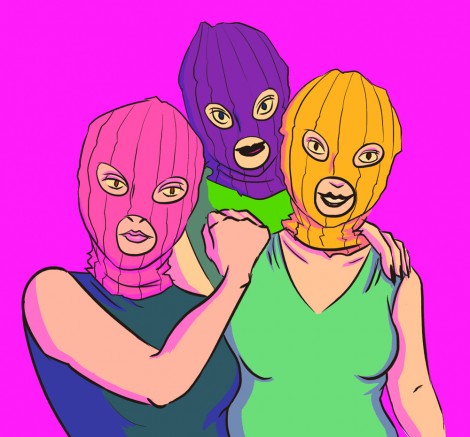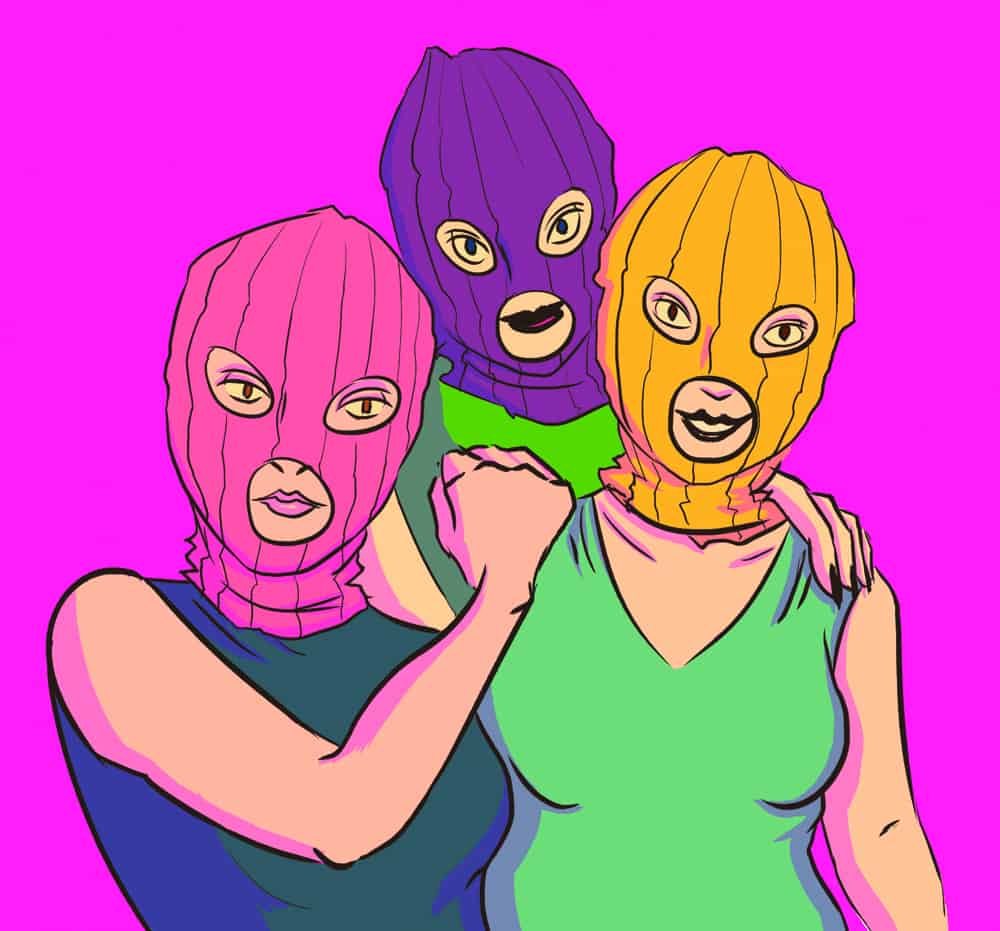When considering the recent impact that Russian punk band Pussy Riot has had on their nation’s politics, think about this: in the past year, Russia’s illustrious leader Vladimir Putin has mentioned its name no less than six times in his speeches. According to journalist Masha Gessen, that is more times than he has mentioned any one country or person — including US President Barack Obama.

JULIEN BALBONTIN/THE VARSITY
As many of us already know, Pussy Riot is the all-female, eleven-membered (approximately — nobody’s quite sure) punk band that is known for its outspoken stance on lgbt rights, women’s rights, and why Putin may very well be the embodiment of evil. Their hefty resumé consists of performing a “punk prayer” in an Orthodox church, two years of imprisonment, and being officially declared “hooligans” by the Russian government. If given a grade, Pussy Riot undoubtedly scores an A+ on the punk rock scale. It has made its mark in Russia as a band that protests the homophobic acts of a corrupt government. In doing so, they have revived the authenticity of a genre that seems to have lost substance over the past few decades.
During the genesis of punk rock, while the war in Vietnam neared its end — and Britain’s economy began an alarmingly steep decline — groups of disaffected youth started creating music that spoke directly to the higher authorities. The music usually focused on topics such as unemployment, scandals surrounding politicians and government officials, and other types of injustices. Known for their elaborate hairdos and their habit of spitting on their audience as a form of greeting, one could say that the punks were a slightly more intimidating version of the hippies from the years prior.
Nevertheless, this coterie protested some of the many injustices that affected their everyday life, and in doing so, created a genre of music that matched its oddball subculture.
Bands like The Clash sang about problems with the law and its enforcement in England, while the Sex Pistols and Black Flag attacked social conformity and strongly encouraged mayhem-induced rebellion. Even in America, Charged GBH and GG Allin expressed anti-war sentiments in their songs (as well as a vague desire to kill the then-US president). Later on, in the short-lived “grunge era” of the early ’90s, bands like Nirvana got their say on the state of American society.
Unfortunately, it was also around this time that punk rock petered out, giving way to a new influx of punk-related bands like Blink 182, Green Day, and Ajax’s very own Sum 41. The bands from the ’70s and ’80s that had made a name for themselves by taking strong political stances all seemed to disappear, causing a decline in politically based punk music. Instead, sub-genres of punk that were less focused on the political, and more focused on making unpleasant guitar noises and being aggressively loud gained ground. Many would say that this is the time when punk rock kicked the bucket.
After years without a significant punk rock scene to be heard of, the Russian collective is everything that genuine punk music was originally meant to be, and more. The lengths to which it has gone to protest the horrifying situation for the LGBT community in Russia has elevated it from musicians to full-scale activists. Its determination to protest landed the members’ in jail, sparking a couple of lengthy hunger strikes. Despite the obvious setbacks, the band continues to spread the message, with anti-hits like “Putin Has Pissed Himself” or “Putin Chickens Out.” Now finally freed, we can only assume Pussy Riot will continue to wreak havoc until justice is served.


